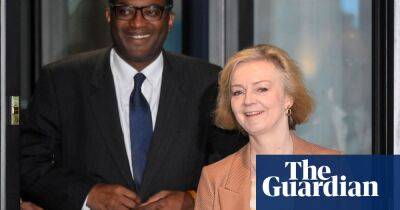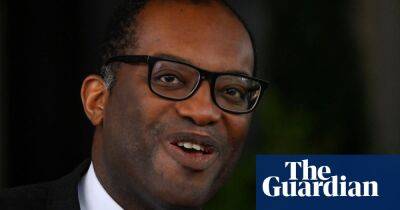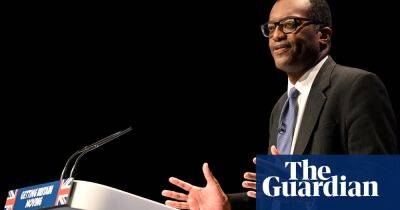Liz Truss and Kwasi Kwarteng’s foolish dash for growth is a non-starter
The ghosts of British economic crises past are raising their spectral heads. Memories are being evoked of the ill-conceived and ill-fated “dashes for growth” under Conservative chancellor Reginald Maudling in 1962-64, Anthony Barber in 1972-74 and my old friend Nigel Lawson in 1988-89.
Yes, they too were Tory chancellors. They usually are. When Gordon Brown, Labour chancellor from 1997 to 2007, was reported as promising “no more boom and bust” he was teased and widely misquoted. What he insisted he actually said was “no more Tory boom and bust”.
These growth efforts were well-intentioned and had in common that it took time for them to be seen as failures. But the Liz Truss-Kwasi Kwarteng dash for growth is something else: the starting pistol for this one has been fired by two of the most arrogant politicians it has been the British public’s fate to have to endure and it looks as though it has been brought to a halt when it has hardly begun.
Kwarteng’s and my paths have crossed only occasionally. Our encounters have been reasonably civilised, but I had a taste of the arrogance when, as a judge of books on financial history some years ago, I was party to a unanimous verdict that the prize that year should go to a quite brilliant volume by Liaquat Ahamed about the leading central bank governors of the 1920s and 1930s entitled Lords of Finance.
Kwarteng bearded me and asked why didn’t he win the prize for his book on gold. Well, there were various answers to that, but one was that the book wasn’t good enough. Now, I am told by contemporaries of his at Eton that Kwarteng was considered absolutely brilliant, but undoubtedly arrogant.
Arrogance is a classic Aristotelean fatal flaw. Seldom has the flaw been on such public display
Read more on theguardian.com






















